By Hannah Means-Shannon
Well, firstly, Friday was the new Saturday this year at NYCC. What that makes Saturday is yet to be seen. Though both Friday and Saturday passes sold out ahead of time, the energy and sense of a full house closely matched Saturday’s peak in attendance last year. The numbers were clearly reflected in Friday’s panels, and even the ones that you might not expect to be packed were crowded and enthusiastic. It may even spell out an interesting trend in con attendance, since the more “hands on” panels focused on getting involved in comics production filled even the back rows.
The “Editors on Editing” panel presented a fairly bland title, but the co-opted panelists and description kept attendees from giving it a pass. Filip Sablik of Boom! Entertainment, Scott Allie of Dark Horse, and Ben Abernathy of Madefire were moderated by Buddy Scalera of Comicbook.School.com. There was certainly schooling going on, and this was just what the audience wanted. When Scalera asked for a show of hands at different points about what audience members were particularly interested in, be it creating comic art, writing comics, or editing comics, a sea of hands flashed into the air. The room was full of motivated would-be creators scribbling notes and later directing the Q and A toward their needs with great determination. It was enough to make you wonder if a gradual trend is now particularly noticeable. With things like Kickstarter and crowd funding available, and in particular with the growth of digital comics platforms, more and more people are coming forward as comics creators in search of advice.
The panelists were all business and spoke in a direct way about their experiences and lessons learned, and brought their respective assets to the table including marketing knowledge and the trends of success over time. Scott Allie combined the unique qualities of an experienced comics writer and editor, and one who continues to write on his own projects while steering Darkhorse in its successes. Allie was careful to point out that he’s not the first of his kind. Other writer-editor combos who have inspired him were Archie Goodwin, Roy Thomas, and Harvey Kurtzman to name a few. Being able to “think like an editor” when examining your writing is worth its weight in gold, he suggested. Abernathy, speaking about Madefire flipped the flow of the equation and said that he preferred to see creators linked to publishing so that they could bring the creator’s perspective, as well as their instincts as fans regarding what they would like to see produced.
A large portion of the discussion, however, was dedicated to “breaking in”. Sablik’s first piece of advice: “Go out and do it”. Write all the time, he said, if you intend to be a writer. Allie chimed in that, as a writer, you still won’t really know until a comic is drawn whether a script works, and learning by trial and error is the most direct path to success. Abernathy pointed out that, unlike past practice of submitting scripts or springboards to comics publishers, the most efficient way to get an editor’s attention is to get several pages of a sample comic drawn. Seeing, in that sense, is believing, and proves the collaborators are able to communicate effectively. Allie had something else to add, that personal relationships play a truly significant role in success. Joss Whedon once summed it up for Allie: “It’s all about relationships”.
It’s a truth that people often discuss, that having “connections” gets you noticed and published, but the panelists approached this idea in a more affirmative light. The positive relationships you establish within comics among fellow-creators will contribute to your success, perhaps much more than you even suspect. The other factor: being willing to do the less glamorous jobs in the comics business to show your work ethic and level of interest. All of the panelists had started in comics as interns or desk-minders to learn things from the ground up. In a way, it was tough advice that could be boiled down to “Care about other people in the business and realize their success contributes to your own”, “Show your commitment to learning in practical ways”, and “Work, work, work”. And during the Q and A, all the panelists agreed that using social media like Facebook, Twitter, and Tumblr to raise awareness about your work is a very wise decision also. If the audience was looking for a simple and effortless key to their golden contract in comics, they didn’t get it.
Scott Allie did his best to dispel myths about routes to success in comics. “My whole life is manipulating creative people”, he said, “All creators lie”, but not “maliciously”. People lie to themselves about their performance in comics, they lie to themselves about their level of proficiency, but editors lie to perpetuate some necessary illusions and bring out completed works at the top of a creator’s range. If you believe what you’re saying about yourself, he suggested, maybe you’ll surprise yourself.
Hannah Means-Shannon writes and blogs about comics for TRIP CITY and Sequart.org and is currently working on books about Neil Gaiman and Alan Moore for Sequart. She is @hannahmenzies on Twitter and hannahmenziesblog on WordPress.


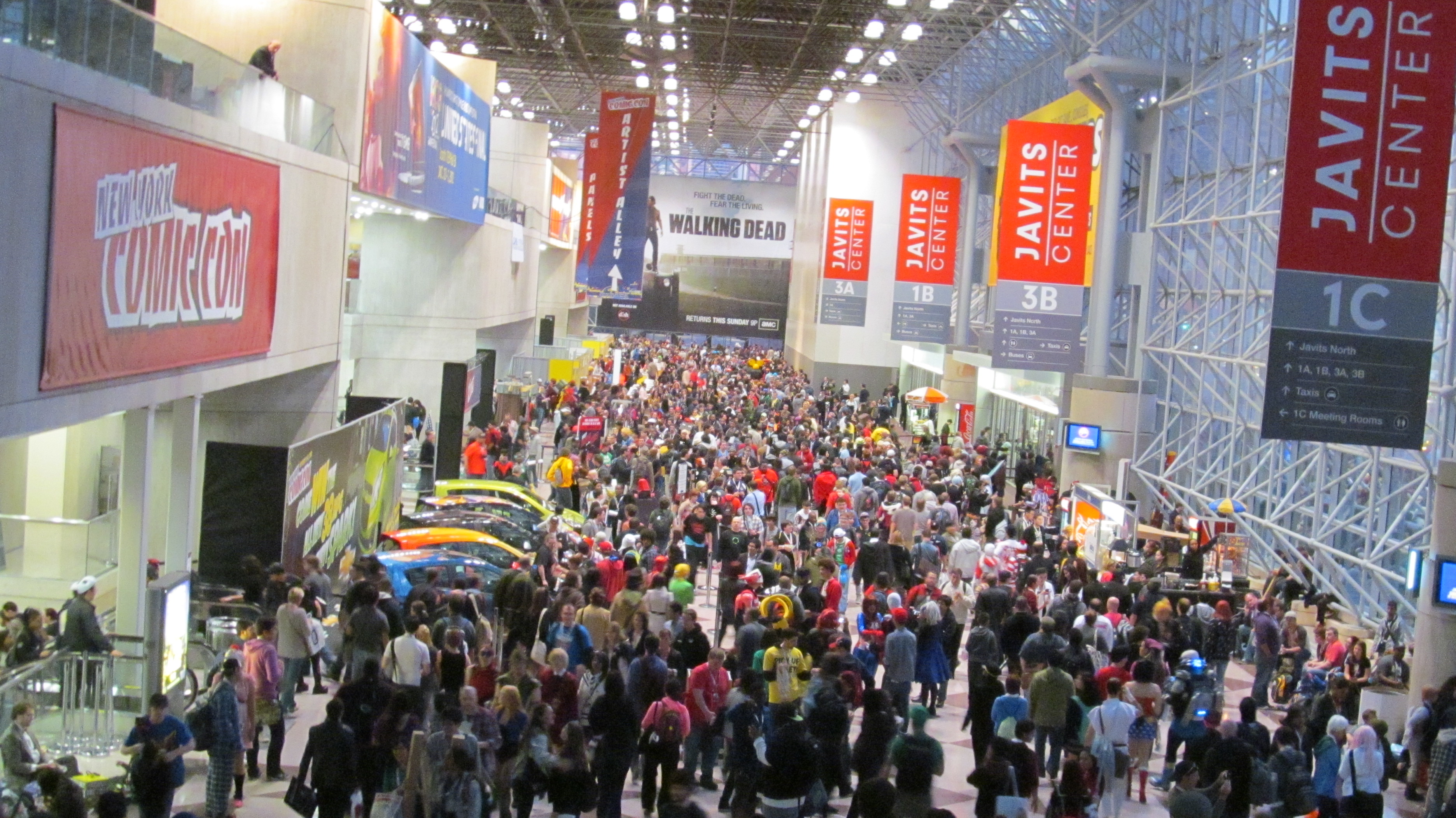

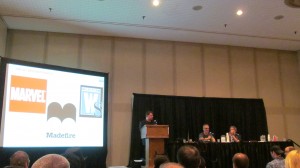
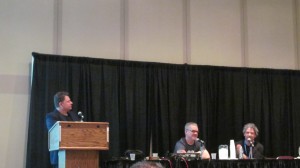
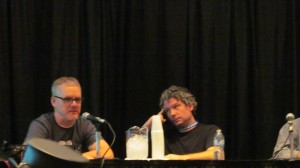
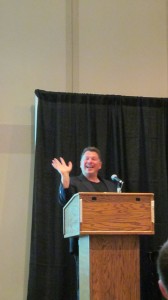


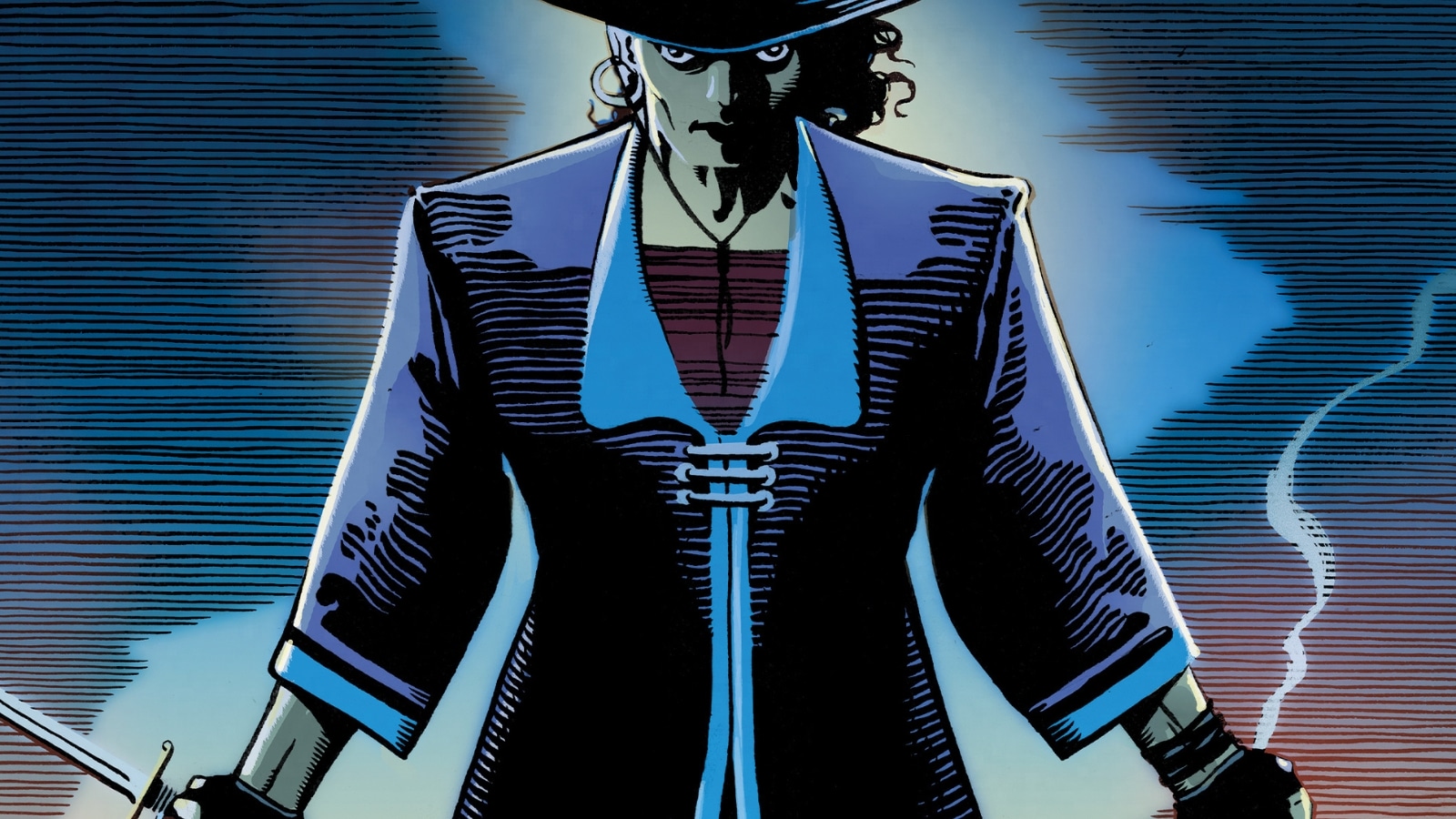



Hannah,
Thanks for covering this panel. I think that this kind of coverage shows your commitment to ongoing comic book education. This is hugely important and I am glad that Scott Allie, Ben Abernathy, and Filip Sablik joined the panel and shared their valuable experience as pros.
Buddy Scalera
http://www.comicbookschool.com
Comments are closed.